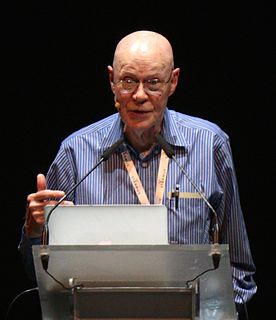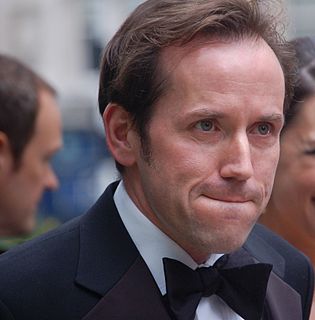A Quote by Sean M. Carroll
Whenever you say you're a physicist, there's a certain fraction of people who immediately go, 'Oh, I hated physics in high school.' That's because of the terrible influence of high school physics. Because of it, most people think physics is all about inclined planes and force-vector diagrams.
Related Quotes
I studied physics at Princeton when I was a college student, and my initial intention was to major in it but to also be a writer. What I discovered, because it was a very high-powered physics program with its own fusion reactor, was that to keep up with my fellow students in that program I would need to dedicate myself to math and physics all the time and let writing go. And I couldn't let writing go, so I let physics go and became a science fan and a storyteller.
It seems that every practitioner of physics has had to wonder at some point why mathematics and physics have come to be so closely entwined. Opinions vary on the answer. ..Bertrand Russell acknowledged..'Physics is mathematical not because we know so much about the physical world, but because we know so little.' ..Mathematics may be indispensable to physics, but it obviously does not constitute physics.
When I was in high school, I was in a special math class. I was infatuated with physics, particularly nuclear physics, Einstein, and the Big Bang. I read a lot about black holes. And partly because I'm so lazy I thought you could do all this just by looking at the sky and thinking up universes. It didn't seem like hard work when I was a kid, so I enrolled in this class.
When I was in college, I didn't like physics a lot, and I really wasn't very good at physics. And there were a lot of people around me who were really good at physics: I mean, scary good at physics. And they weren't much help to me, because I would say, 'How do you do this?' They'd say, 'Well, the answer's obvious.'
What I am going to tell you about is what we teach our physics students in the third or fourth year of graduate school... It is my task to convince you not to turn away because you don't understand it. You see my physics students don't understand it... That is because I don't understand it. Nobody does.
Most people are nostalgic in a way that they're fond of the past, but they still are happy that they are where they are now. You know, when you say, 'Oh, high school was this or that,' you don't want to go back. No matter how much you loved high school, you don't want to actually be back in high school. I certainly wouldn't.
My high school career was undistinguished except for math and science. However, having barely been admitted to Rice University, I found that I enjoyed the courses and the elation of success and graduated with honors in physics. I did a senior thesis with C.F. Squire, building a regulator for a magnet for use in low-temperature physics.
Our annual school physics trip was always to Blackpool Pleasure Beach, as it's such a good example of Newtonian physics. You can learn about centrifugal force and Newton's first law from the roller coasters, and the Viking long boat is a giant pendulum. It's good for children to understand that science underpins all these brilliant things.
People will listen to sophisticated physicists, using God as a kind of metaphor for the deep constants, the deep problems, the deep principles of physics, and say that in that sense I believe in God. The reaction is, "Oh, this great physicist believes in God - that means I'm free to believe in the trinity and in the crucifixion and in the reincarnation of Christ" - and all that stuff, which of course has nothing whatever to do with the fundamental constants of physics, which is what these physicists are talking about.



































